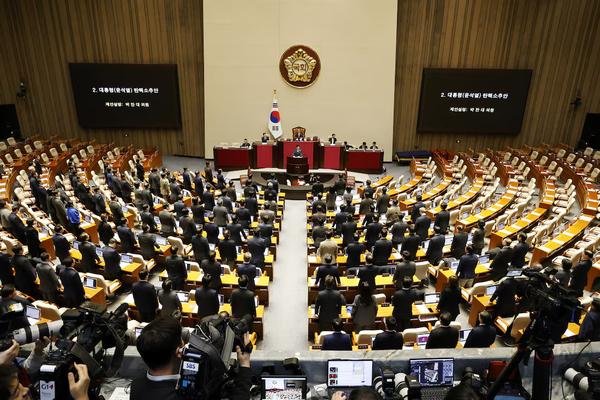Economic Bills Stuck in Committees Amid Political Turmoil
South Korea's economic policies are facing significant turbulence due to the nation's deeply divided political landscape. The ongoing state of emergency declared by President Yoon Suk Yeol and his subsequent impeachment have led to a legislative gridlock, putting crucial economic bills at risk.

As of Dec. 8, a total of 1,764 economic bills are pending in various committees of the National Assembly, according to an analysis by the Seoul Economic Daily. These bills span across multiple committees, including Planning and Finance, Trade, Industry, Energy, SMEs, and Startups, Land, Infrastructure and Transport, Science, ICT, Broadcasting and Communications, and Political Affairs.
One of the most critical pieces of legislation is the Special Act on Semiconductors, which aims to bolster the competitiveness and innovative growth of South Korea's semiconductor industry. This act includes provisions for subsidy payments and the establishment of a semiconductor support organization. Despite agreement from both ruling and opposition parties on the necessity of this act, political issues threaten to overshadow economic discussions.
In the power and energy sector, legislative tasks are also piling up. The Special Act on Expanding the National Power Grid seeks to limit the site selection period for transmission facility site decisions to two years, down from the current average of four to five years. The energy industry has highlighted the urgency of this act, pointing out that the installation speed of transmission networks is not keeping pace with power demand.
Tax laws are another area in urgent need of revision. The amendment to the Inheritance and Gift Tax Act proposes lowering the highest inheritance tax rate from 50% to 40% and eliminating the 20% premium evaluation for major shareholders. However, strong opposition from the opposition party threatens to derail this amendment.
Academics and experts are calling for responsible behavior from the opposition in the economic field, separate from the presidential impeachment. Won Yong-geol, president of the Korean International Economic Association and president of the University of Seoul, emphasized the need for bipartisan cooperation, stating, "The President said he would delegate to the party and the government, but the People's Power Party holds just over 100 seats. Cooperation from the opposition is inevitable."









Comments